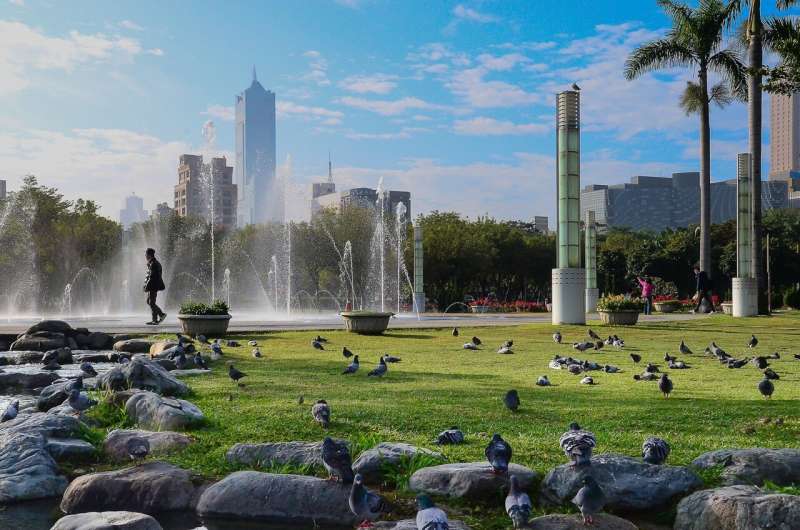This article has been reviewed according to Science X's editorial process and policies. Editors have highlighted the following attributes while ensuring the content's credibility:
fact-checked
peer-reviewed publication
trusted source
proofread
New study highlights inequality in green spaces and mental health

A new study published Oct. 9 in The Lancet Planetary Health highlights the beneficial role of greenness and access to green or blue spaces in reducing socioeconomic-related inequalities in mental health.
The researchers found that every additional 360m to the nearest green (e.g., park, field or wooded area) or blue (e.g., lake, marina, or the sea) space was associated with higher odds of anxiety and depression.
The study presents the largest, most comprehensive evaluation of the effect of differences in exposure to green and blue spaces on mental health over a 10-year period.
Professor Sarah Rodgers and Dr. Rebecca Geary, researchers from the Department of Public Health, Policy and Systems at the University of Liverpool, worked with researchers internationally to anonymously link records of household greenness, access to green and blue space, and GP records of anxiety and depression for more than 2 million adults in Wales.
While the effects of green spaces on mental health have been well documented, using the medical records of an entire adult population over such a length of time gives a new level of understanding to this work.
The researchers emphasize that investing in improved public green spaces might bring mental health benefits to everyone, but particularly for those living in more deprived areas. The findings can support organizations and authorities responsible for green and blue spaces, who are attempting to engage planners and policymakers, to ensure that local green and blue spaces meet the health needs of residents.
Professor Sarah Rodgers, Professor of Health Informatics at the University of Liverpool said, "Our study has shown that green and blue spaces are likely to protect people from needing to see their GP for anxiety or depression, and in places where people have fewer resources overall, living near these spaces seems to have a bigger protective effect than for people living in areas with more resources."
The researchers call for future studies to investigate why those living in lower-income and higher-income areas are affected differently by access and exposure to green and blue spaces. We need to ensure that those who are in the most need, and will benefit the most, have access to these free green and blue spaces, helping to protect the health of our population.
Geary, Lecturer in Epidemiology and Public Health at The University of Liverpool, emphasized, "Our environmental health equity evidence shows the importance of enhancing our built environments by including appropriate green and blue spaces to improve the health and well-being of all adults, especially those living in the most deprived areas. Providing urban green and blue spaces may also give additional co-benefits of job or food creation, biodiversity promotion, flood prevention and carbon sequestration, so are both a public health and social investment."
Commenting on the study, Richard Mitchell, Professor of Health and Environment at the University of Glasgow, said, "This brilliant study gives us three reasons to be cheerful. First, it confirms that natural environments around us really do benefit our mental health. Second, the benefits seem strongest for those most at risk, so there's huge potential for tackling the gulf in health between richer and poorer people. Third, the study shows what great science we can do in the U.K. using our world-leading health datasets safely and securely."
More information: Rebecca S Geary et al, Ambient greenness, access to local green spaces, and subsequent mental health: a 10-year longitudinal dynamic panel study of 2·3 million adults in Wales, The Lancet Planetary Health (2023). DOI: 10.1016/S2542-5196(23)00212-7. www.thelancet.com/journals/lan … (23)00212-7/fulltext


















